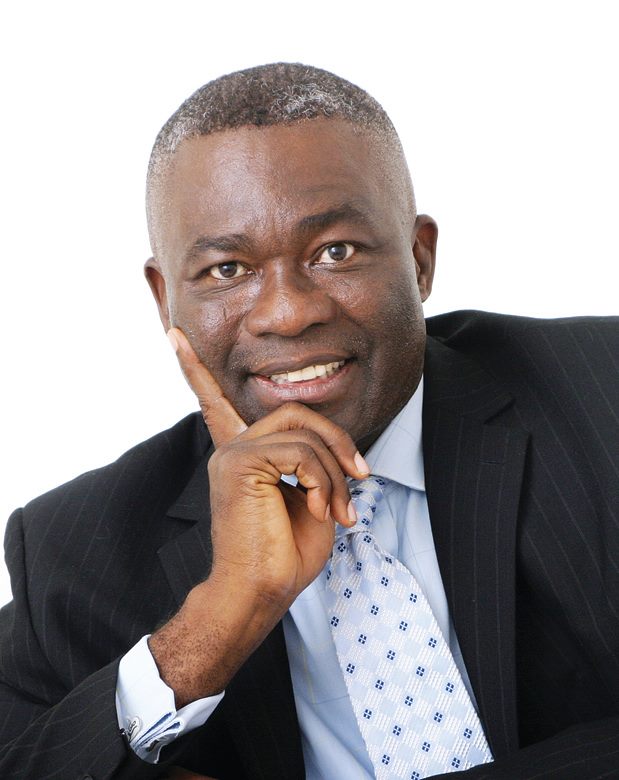JOB CREATION STRATEGIES
- The U.S. needs 25 million barrels of oil daily, and pumps about 8 million of those barrels domestically. The U.S. oil and gas industry provides employment directly or indirectly to 9.6 million Americans. By proportion, since Nigeria pumps 2.8 million barrels of oil daily, we should have 2.8 million Nigerians employed in our oil and gas industry. The question is how many Nigerians are employed in our oil and gas industry, and how can we increase the number?
- Sometime ago, President Jonathan spoke about the deforestation of Nigeria’s forests. Our solution to this problem can help develop our gas industry and create thousands of jobs in the process. Nigeria currently exports most of the gas we generate, and the rest that are not exported is burned off. Nigeria burns $2 billion worth of gas yearly. That is enough to build 2,000 mega watts of power that can light up two million homes. Multiply that by ten or twenty years, and we have lost an opportunity to build 40,000 megawatts of power and create employment for millions of Nigerians.
- Therefore, to reduce deforestation and create employment, we need to create a gas industry that is completely private. If 50-60 % of Nigerians cook their food with LPG or propane we can spurn an industry that changes our oil and gas economy from being an extractive industry into an industry that is domesticated and generating employment and commerce for our people. Imagine how many Nigerians will be employed in pumping, processing, filling and distributing 20-50 million cooking gas cylinders per month. So rather than just extract our oil and gas assets, we should take them through our own domestic commercial process. That is how you create jobs.
- Nigeria’s teledensity has grown from less that 10% to over 50%. Today, over 70 million Nigerians have at least one phone, most have two, yet there is not a single phone manufacturer in Nigeria that makes the handsets used by Nigerians. There are no battery manufacturers that make batteries for those phones, and there are no Nigerian manufacturers that make cords for the hand sets. No Nigerian software industry is involved in writing software for the phones, and I don’t even think any of the handsets are assembled in Nigeria. That is 2 million jobs we could have created by insisting that any company that wants to sell their handsets to Nigerians must open a manufacturing and an assembly plant in Nigeria.
- The Lagos state government of Babatunde Fashola recently stated that they have established a poultry farm in Ikorodu that will produce 20,000 tons of poultry per years and provide jobs for 400 people. While this is commendable, what is needed to be pointed out to our leaders is that the business of government is not business. The business of government is to empower its own people, by providing the right environment and infrastructure necessary for entrepreneurs to thrive. For example, what if the Lagos state government had empowered, facilitated the training and guaranteed the capital necessary for 400 citizens to each create a poultry farm that can produce 20,000 tons of poultry and employ 400 citizens each? Then Lagos state would have created 160,000 jobs in the poultry industry that can produce 8 million tons of poultry per year.
Recently, the Ministry of Finance in collaboration with the Ministry of Youth Development, the Ministry of Communication Technology and the Private sector unveiled an initiative tagged You Win( Youth Enterprise with Innovation in Nigeria) to ignite the spirit of entrepreneurship in youths and facilitate the creation of more jobs for young Nigerians.
The Minister of State for Education, Chief Nyesom Wike, has said the Federal Government will invest in technical and vocational education to create about one million jobs through a collaboration with educational institutions in Taiwan, South Korea and United Kingdom to create access to functional vocational education for Nigerian youths. He says the focus is to use technical and vocational education to create jobs for Nigerian youths
The World Bank advocates a “three-lens approach” to youth empowerment involving
- Working for youth as beneficiaries
- Engaging youth as partners
- Supporting youth as leaders
According to the World Bank, policymakers should frame correct social as well as economic policies based on these “youth lenses”. To bring this about requires the following broad initiatives:
Changing the Policy Environment: The policymakers need to expand access to and enhance the quality of education and health services. The policymakers need to give young people a voice to articulate the kind of required assistance and the opportunity to participate in the delivery of assistance policies.
Develop Youth Capabilities: To help the young people to choose the best from these opportunities, policymakers need to develop the youth’s capabilities. To do this, the policymakers first have to recognize the youth of their country as a strategic resource and vital decision-making agents. They also need to make sure that the youth are well-informed, sufficiently resourced and judicious while making their decisions.
Provide Second Chances: The policymakers have to provide the young people with an effective system wherein they should grant the youth with second chances. For this, they have to implement target programs that would provide hope to the younger people as well as provide them incentives to positively reshape their destinies.
Increase Investment in Youth: If done properly, investment in youth especially during the five life transitions of youth will develop, safeguard and put in place proper human capital. As the youth undergo each transition from learning, work, health, family and citizenship, public policies and investments in youth can determine their directions and can prevent the youth from going off-track especially when there are economic crises and markets do not provide sufficient economic opportunities.
Create a Productive Working Life: Once youth obtain the necessary skills, it is important to deploy those skills. This should be done by framing policies and implementing programs that would benefit the rich and poor so that there is fair and even competition. The states have to realize that freeing up their economy to foreign investment not necessarily restricts their role but in fact increases their role in the economic affairs. The policies that open up the economy will become youth friendly only if the government is able to direct proper resources towards the youth and provide them access to jobs that are created due to liberalization of the economy.
Frame Policies that Enhance Youth as Decision Makers: policymakers in countries where youth economic marginalization is a major reality need to help young people make appropriate decisions to seize the opportunities that do exist. In the contemporary world, young people increasingly make their own life-course decisions on their own. These affect their future.
The state needs to inform the youth about these and other issues unknown to youth by intervening in the school and educational institutions on a regular basis, by making use of the media, by enhancing the content of campaigns directed towards the welfare of youth and by harnessing new technologies that would help to educate the youth. These include informing youth through social campaigns highlighting the importance of education. The states and policymakers also need to tap worldwide knowledge with the help of new technologies such as the Internet to inform youth.
Direct Programs Properly: This is in fact one of the most important things that states need to do to overcome the youth economic marginalization. An economic program targeted towards enhancing the social and economic welfare of youth is of no use if it fails to reach the youth who need it. This is especially applicable to developing countries as many policies that government frames for the benefit of the youth are unable to reach them adequately due to the intermediate and corrupt forces that create a divide between the rich and the poor.
Peter Osalor is a multi-skilled director, chairman of trusts, proprietor and consultant. Peter Osalor has been a successful entrepreneur since 1992 when he formed Peter Osalor & Co and which has since grown to a very large client base with a turnover of millions. He is currently a fellow of the Association of Chartered Certified Accountants (ACCA) and the Institute of Chartered Accountants in Nigeria (ICAN). Peter is also a member of the Chartered Tax Advisors and the Chartered Institute of Taxation in Nigeria (CITN).
He is a business mentor for Princess Trust in the UK. He is a member of the Inter Governmental Committee of ICAN and also a member of BCBC, which represents Black Church Membership of Christians whose responsibility is to ensure that the Christian businesses are not left out in the business opportunities arising from the 2012 Olympic Games In London.
Currently he is one of the professionals behind the Entrepreneur Revolution and Africa Entrepreneurs ( [http://theafricanentrepreneurs.com/] ). His T V program called success in your business ( [http://www.successinyourbusiness.com] ) has become a massive hit in Nigeria.
Article Source: https://EzineArticles.com/expert/Peter_O_Osalor/415344
Article Source: http://EzineArticles.com/7046677



